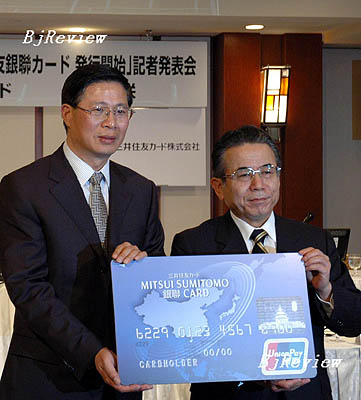|

Recently, the fast appreciation of the Chinese currency has become a major concern both at home and abroad. Ba Shusong, a researcher with the Development Research Center of the State Council, in a recent article for the 21st Century Business Herald, suggested that the renminbi exchange rate can become more flexible if it is fully internationalized.
In the world of globalization, opening up has become an inevitable choice for the Chinese financial industry. The internationalization of the Chinese currency-renminbi, as an important channel for China to influence the global economy, has been discussed and researched repeatedly by scholars both at home and abroad.
Renminbi internationalization is the economic process during which the Chinese currency crosses the border and becomes a generally accepted measure of value, payment and wealth storage. The internationalization of the renminbi should follow a gradual process from the domestic market to the international market, and its function in the international market will transform from low to high. Currently, the function of the renminbi as an international currency is very limited, limited only to neighboring countries, and is at the early stage of gaining regional acceptance.
A critical dilemma is what impact the internationalization of the renminbi will have on the domestic banking industry.
First let's take a look at the influences on banking businesses. The major businesses of commercial banks include asset business, liability business and intermediary business. Extensive overseas demand for and the expanded circulation of renminbi will exert great influence on the various businesses conducted by domestic banks.
Asset business is a major and traditional income resource for commercial banks. In recent years, the renminbi asset business has developed to some extent. However, as the Chinese currency is not convertible yet and capital accounts are under government control, domestic financial institutions' renminbi asset businesses are still at an early stage of overseas development.
The renminbi liability business mainly refers to renminbi deposit business, such as current deposits and fixed deposits. At present, renminbi under capital accounts is not fully convertible. The major currencies traded by Chinese banks in the offshore market are the U.S. dollar, the euro, the Japanese yen, the pound, and the Hong Kong dollar, while renminbi offshore deposit trading has not started yet. Therefore, domestic deposit business is temporarily protected from outside influence and is mostly influenced by multiple financial assets operating within the domestic stock and property markets.
With the gradual opening up of capital accounts and the internationalization of the renminbi, offshore renminbi deposit business will eventually be conducted in the international market.
Recently, with the continuous deprecia-tion of the U.S. dollar and the diversification of international currencies, U.S. dollar deposits have decreased to some extent. According to the experiences of U.S. dollar internationalization, stimulated by transaction costs and interest yields, the U.S. dollar market in Europe diverted some of the U.S. domestic dollar deposits due to interest rate differences between the two markets. Renminbi internationalization will have a similar effect.
The major revenue of commercial banks comes from deposit and loan interest differences and charges for intermediary business. The low cost, low risk and high yield nature of intermediary business pushes the business to develop fast. International trade and inter-bank intermediary businesses prefer to use widely circulating currencies. Renminbi internationalization can reduce currency exchange costs and risks, thus making international intermediary business more convenient.

Fast economic development and the rising status of the renminbi can boost the country's international trade, international payment in renminbi and capital injection into the country's capital market. Similarly, Chinese banks will be able to develop international intermediary business through international settlements, international bankcard and fund custody, which will bring stable profits to the banks.
| 